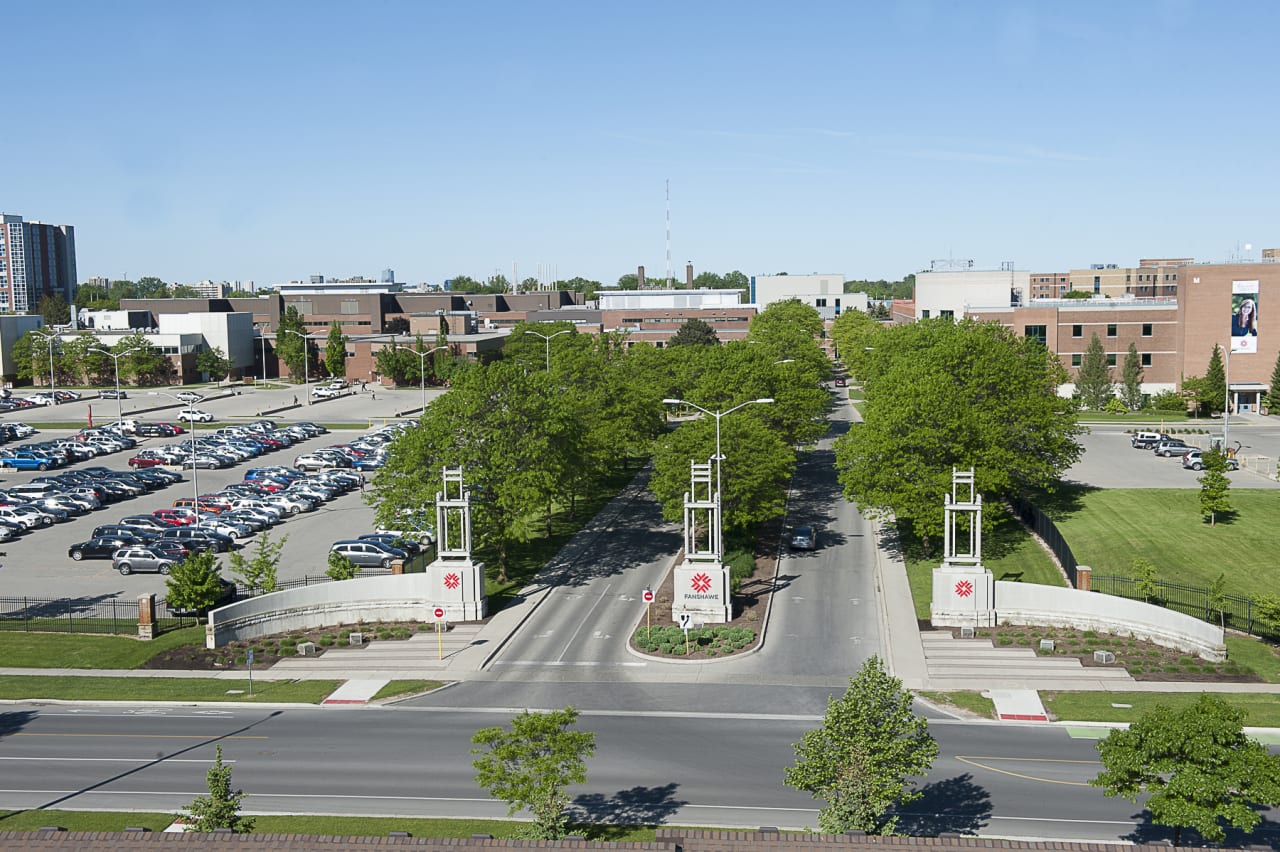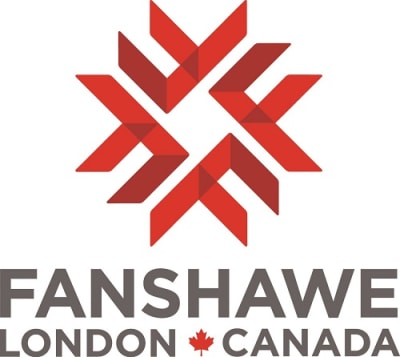
Honours Bachelor of Early Childhood Leadership
Fanshawe College

Key Information
Campus location
London, Canada
Languages
English
Study format
Distance Learning, On-Campus
Duration
4 years
Pace
Full time
Tuition fees
CAD 28,925 **
Application deadline
Request info *
Earliest start date
Request info
* equal consideration deadline. After that, we consider applicants on a first-come, first-served basis until programs are full
** total program costs for Canadian students. $67,755.32 for international students. Online fees for Canadian students are $4,853.19
Scholarships
Explore scholarship opportunities to help fund your studies
Introduction
The Honours Bachelor of Early Childhood Leadership is a four-year honors degree program for students who want to become passionate leaders. Students will learn a solid foundation in child development, pedagogy, human relationship, curriculum development, and leadership skills. Graduates find employment in guiding and leading curriculum and pedagogy, family support programs, and early intervention services.
Your Learning Experience
The education and early years landscape is rapidly evolving and requires successful and passionate leaders. Begin your journey with the innovative Honours Bachelor of Early Childhood Leadership program.
This four-year early childhood education degree program will prepare you with a solid foundation in child development, pedagogy, human relationships, curriculum development, and leadership skills. You will participate in applied learning, case studies, research, and field placements in the community. All this culminates in one fourteen week-internship before your final year of studies, followed by your final year capstone research project. Your studies and experiences in the Honours Bachelor of Early Childhood Leadership program will provide you not only with your Bachelor's in early childhood leadership but also with the necessary skill set to graduate and move forward into various leadership roles.
This innovative four-year honors program offers students studies in early childhood development, pedagogy, human relationships, curriculum development, and leadership. Students develop the necessary skills to engage as pedagogical leaders in a diverse range of roles in the evolving disciplines within the early year's education and care sector.
A key component of this degree is the applied learning that takes place in ideal-sized classrooms focusing on case studies, research, interpersonal communication, advocacy, and leadership skills. Students complete two field practicums in the first and second years in addition to a fourteen-week intensive Internship between the third and fourth years. International internships are offered on a limited basis for qualifying students.
In the final year, graduating students participate in a major capstone course that provides students the opportunity to integrate their practical experiences and knowledge in a supervised research project. Opportunities for graduating students include positions as Registered Early Childhood Educators in childcare, JK, SK, supervisory roles, ECL leaders in social service agencies, or with the Ministry of Education. Students may further their studies in B.Ed. programs (Teacher’s College) at Canadian universities, as well as internationally. Graduates may also pursue their Master of Education, Master of Social Work, or Master of Arts degree.
Gallery
Admissions
Curriculum
Core Courses
Take all of the following Mandatory (Core) Courses: The Minimum Cumulative GPA for Core Courses is 2.5 (ECED-7002 and ECED-7001 are for ECE bridging students only)
Group 1
Level 1
In addition to the following mandatory courses, please refer to the Non-Core Level 1 requirement below
- ECED-7004 ---- Human Development-Foundations
- HLTH-7011 ---- Holistic Wellness
- ECED-7025 ---- Observing for Pedagogical Documentation
- COMM-7009 ---- Interpersonal Communication
- ECED-7024 ---- Principles to Practice in Early Years
Group 2
Level 2
In addition to the following mandatory courses please refer to the Non-Core Level 2 requirement below
- ECED-7006 ---- Human Development-The Early Years
- HLTH-7002 ---- Wellness and the Young Child
- FLDP-7015 ---- Field Practicum 0-3 Years
- ECED-7026 ---- Curriculum for Young Children: 0-3 Years
- FLDP-7016 ---- Field Seminar 0-3 Years
Group 3
Level 3
- ECED-7009 ---- Human Development to Late Adult
- PHIL-7011 ---- Philosophy and History of ECE
- SOCI-7016 ---- Family Studies-Research and Application
Group 4
Level 3 Additional Requirement
Take ECED-7008 or ECED-7002
- ECED-7008 ---- Reflection and Critical Thinking
- ECED-7002 ---- Intro to Early Childhood Leadership
Group 5
Level 4
- ECED-7012 ---- Human Development-Relationships
- MGMT-7001 ---- Organizational Structure
- FLDP-7017 ---- Field Practicum 3-6 Years
- FLDP-7018 ---- Field Seminar 3-6 Years
- ECED-7010 ---- Inclusive Practice
Group 6
Level 4 Additional Requirement
Take ECED-7027 or ECED-7001
- ECED-7027 ---- Curriculum Early Learning: for 3-6 Years
- ECED-7001 ---- Evidence-Based Prac in Early Childhood
Group 7
Level 5
- ECED-7014 ---- Quality Assurance in ECE
- MGMT-7002 ---- Leadership in Learning Organizations
- MGMT-7003 ---- Leadership in a Tech World
- ECED-7017 ---- Healthy Community-Advocacy and Leadership
- ECED-7003 ---- Applied Research Methods
Group 8
Level 6
- ECED-7016 ---- Human Development-Current Topics
- MGMT-7005 ---- Managing Projects
- ECED-7028 ---- Pedagogical Leadership in ECE Programs
- FLDP-7012 ---- Internship Seminar
Group 9
Level 7
- ECED-7029 ---- Capstone Research 1
- FLDP-7007 ---- Solutions for Early Childhood Leadership
- ECED-7018 ---- ECE Program and System Delivery
Group 10
Level 8
In addition to the following mandatory courses, please refer to the Non-Core Level 8 requirement below
- ECED-7030 ---- Capstone Research 2
- SOSC-7029 ---- Social Policy in Canada
Group 11
Internship (Co-op Work Term)
Usually Completed after Level 6
- COOP-ECL1W ---- ECL1 Internship
Non-Core Courses
Take the following Mandatory (Non-Core) Courses:
Taken in Levels 1 and 2
The Minimum Cumulative GPA for Non-Core courses is 2.0
Group 1
- COMM-7008 ---- Composition and Rhetoric
- PSYC-7044 ---- Principles of Psychology
Group 2
Take 9 General Education Elective Credits at the Upper Level (Non-Introductory) - Normally taken in Levels 6, 7 and 8
Group 3
General Education - Electives
Take 6 General Education Elective Credits at the Introductory or Upper Level from two of the following subjects - Humanities (HUMA), Global Culture (GBLC), Math (MATH), and Science (PHYS) - Normally taken in Levels 3 and 6
Group 4
Take 3 General Education Elective Credits at either the Introductory or Upper Level - Normally taken in Level 8
Program Residency
Students Must Complete a Minimum of 36 credits in this program at Fanshawe College to meet the Program Residency requirement and graduate from this program
Program Outcome
The graduate has reliably demonstrated the ability to:
- Analyze the interacting social, and biological forces that collectively shape early brain development, and set the stage for lifelong learning, behavior, and health.
- Respect families' central role in child-rearing, and early learning, and the impact of family structures, community support systems, culture, and socio-economic status on parenting.
- Lead the design, and implementation of inclusive, effective curricula for young children, based upon a critical analysis of historical perspectives, observation, current research, and understandings of early human development.
- Develop inclusive early intervention programs that respond to children with identified special needs.
- Evaluate early childhood programs, engage stakeholders in the process, and address the diverse needs of young children, and families.
- Acquire self-knowledge, critical thinking skills, and professional habits of mind essential to the practice, and leadership of early childhood education.
- Apply research skills, including assessment of the research process, formulation of research questions, and collection, and interpretation of data, in a variety of research projects.
- Establish responsive, and reciprocal relationships with children, families, colleagues, and other stakeholders.
- Perform responsibilities in a manner consistent with ethical, and professional codes of conduct; in compliance with legislative, and legal requirements; and, within the defined scope of practice limitations.
- Advocate on behalf of children, families, colleagues, and the broader community, promoting the principles of quality in early childhood programs.
- Apply the principles of human resources, financial, and facilities management to the operations of an early childhood program.
- Collaborate with early childhood educators, and other professionals in multi-disciplinary or cross-sectoral environments, and across diverse domains of practice.
- Communicate in a professional manner in all verbal, non-verbal, and written mediums.
Career Opportunities
Fanshawe’s Honours Early Childhood Leadership (ECL) baccalaureate prepares graduates to take a leadership role in Ontario's early childhood settings, family support programs, or early intervention services. The goal of the program is to prepare childhood professionals with program leadership capacity to move into supervisory/director positions in a full range of early childhood programs and/or to further their studies in graduate programs such as the Bachelor of Education and Master of Education programs.
Here are some examples of career opportunities for graduates of Fanshawe’s Honours Bachelor of Early Childhood Leadership program:
Early Childhood Educator
Enthusiastic and passionate about working with children aged three months to four years.
Au Pair
Care for children working with private families in a variety of international locations including England, The Netherlands, France, Spain, Italy, China, Australia, and New Zealand.
Early Childhood Educator
Collaborate with a classroom teacher to plan and implement an early learning program.
Student Testimonials
English Language Requirements
Certify your English proficiency with the Duolingo English Test! The DET is a convenient, fast, and affordable online English test accepted by over 4,000 universities (like this one) around the world.